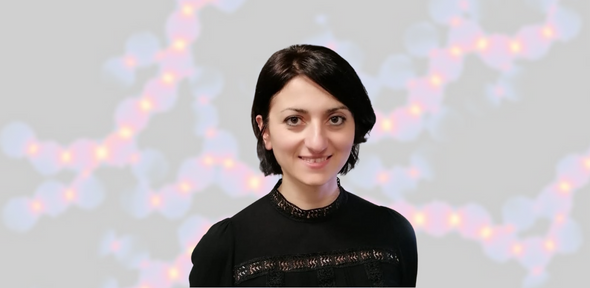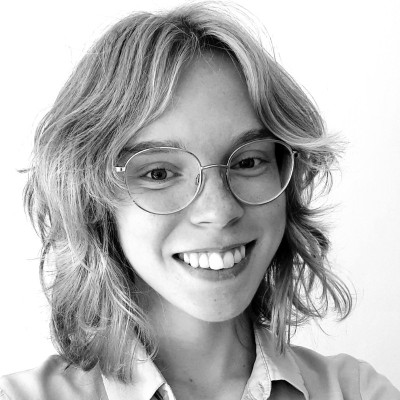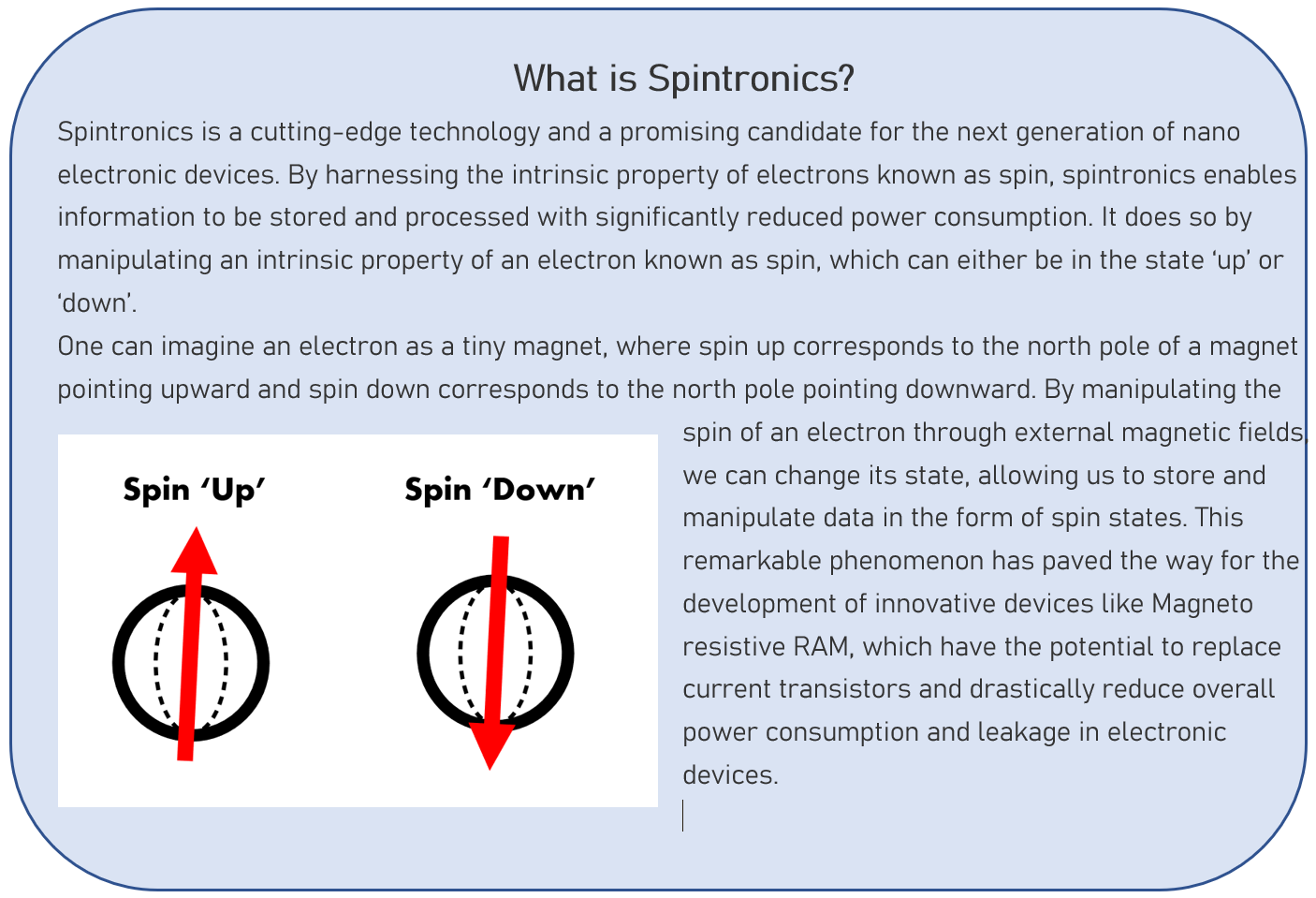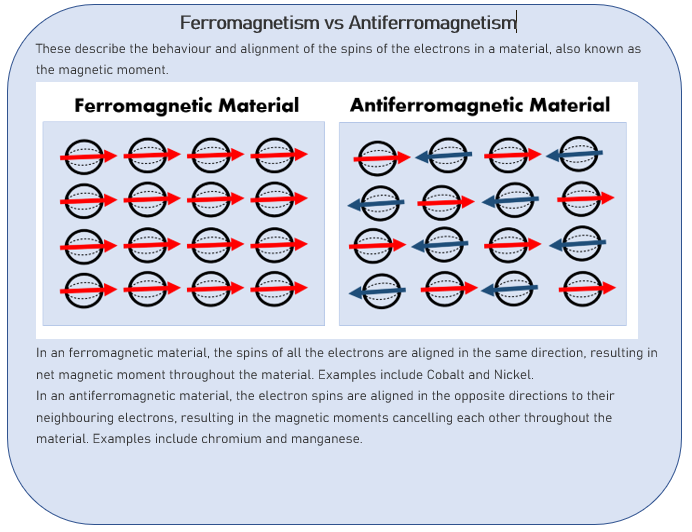
This blog is part of an interview series by Tara Murphy.
|
Tara Murphy I’m Tara, a NanoDTC student here at the Cavendish Laboratories in the University of Cambridge. Since arriving here last year, I’ve come to realise the exceptional work being carried out by the brilliant women at the Cavendish Laboratories and I think it’s crucial to bring attention to the remarkable achievements and invaluable contributions of these women, both past and present. Join me, as I sit down with the remarkable women of Cavendish, delving into their personal journeys, research interests, and experiences in the scientific community. This week I spoke with Dr. Chiara Ciccarelli whose research focuses on magnetism, spintronics and the study of quantum spin-effects in magnetically ordered materials. Here, Chiara shares with us her experience of becoming a researcher, her current work and topics and areas of magnetism she hopes to explore in the future.
|
Interview with Dr. Chiara Ciccarelli
|
Thank you Chiara for speaking with me today! To introduce yourself, could you tell me a bit about your life as a student? Of course! As a student, I followed the Italian system until high school. However, when my father moved to Poland for work, I started to go to an international school. I did the last three years of high school there, and then studied Physics in one of the universities of Rome. After my degree, I moved here to Cambridge for my PhD. You could say I got stuck here after that and never moved again! |
|
Why did you choose physics and finally decide on a PhD? Picking Physics at University was a difficult choice. I wasn’t sure of the job opportunities a Physics degree would offer, so I also considered studying economics, and I didn't decide between the two until the very last minute. Finally, I picked Physics without asking too many questions or making too many plans and took a degree in theoretical Physics. Continuing for a PhD came as a more natural choice, I had really enjoyed studying Physics at University and it made sense to continue for a little bit! |
|
What was your PhD focused on? And what sparked your interest in that specific field of research? The PhD I chose was focused on spintronics and magnetism. After the undergraduate degree, I had no clear idea of what research was like. The main reason why I chose spintronics, was because of my thesis supervisor. One time, he gave me a Science review article that celebrated the main achievements and scientific outbreaks in spintronics. I was fascinated and I started to look for groups that were working in this field. |
|
Was it difficult to go from a theoretical background to an experimental PhD? I felt very comfortable with theory after studying theoretical Physics for my undergraduate degree, and the group I joined was very experimental. I would often question whether it had been the right choice, but I still loved the Physics behind my experiments. There's a lot of quantum mechanics in spintronics! The more technical parts of my research were challenging, I felt I didn't have the same intuition that other people in lab had on handling instruments. But this came later with experience and training. |
|
I also studied theoretical physics and from my experience, I think having this background has given me a different type of advantage. When I go into a lab, I see equations and how the experiment relates to those equations, whereas others might have the intuition behind the actual physical mechanism. I think it's just another viewpoint. Absolutely! I think having a theory background has paid off. But also, when you're there and you have to do that experiment…it can be difficult! |
|
I would agree! Could you tell me a bit about how you got to where you are in Cambridge after your PhD? The focus of my research changed a little bit from when I initially started, although magnetism remains the central theme, the leitmotif. After my PhD I got a Junior Research Fellowship. This is when I started to build up my scientific personality and matured the decision to move towards experimental techniques that allow for better time resolution with respect to those I had used for my PhD. In this way I could study effects that happen at much faster timescales, and access the rich but still not well understood physics of non-equilibrium phenomena. These phenomena open up new opportunities to develop spintronic devices that are much faster or more energy efficient. So, this seemed to me a pretty interesting direction to take, and it was also new, not many people in spintronics were doing this research at that time! To reach the better time resolution I needed time-domain THz spectroscopy. So, to build the necessary knowledge in optics and THz spectroscopy, I joined the group of Alexey Kimel in the Netherlands as a visitor. I then applied for funding to setup a dedicated system in the Maxwell Centre. I have to thank both the Winton Programme and the Royal Society for giving me the opportunity to follow my idea and start this new research. I am very proud of the THz lab we built, it’s allowing us to expand our research in very different directions and start new collaborations. It was worth investing time and energies on it. |
|
That sounds amazing! What difficulties did you have to overcome when transitioning from the microwave to that of terahertz frequency? Well, it's a completely different type of technique in the sense that for terahertz we need optics and I had no experience with optics. Microwaves can travel in cables, the experiments we do in our THz lab are pretty much pump-probe measurements in free space. So, it required a significant investment to build the knowhow in the group. Creating a network of collaborators in this field was very important to achieve this. |
|
What were the biggest challenges you faced as a researcher throughout your career so far? Starting to do research in a new field is not easy, especially at an early career stage, because you don’t often have the credibility. Also, building collaborations in a field of research where female representation is very small can be challenging for a young female researcher at the beginning of her career. |
|
It's great to see how you overcame those challenges and are able to carry out all this exciting work. Are there any exciting projects you're currently doing at the moment with your group? There are several! Anti-ferromagnets for example. These are very interesting materials because the speed with which spins can be manipulated is much higher, 1000 times higher, than what can be achieved with the ferromagnets we use for non-volatile storage. So, they are interesting candidates for increasing the speed of magnetic memories, which would allow important energy savings. Another area I became interested in is superconductivity, or better, combining ferromagnetism with superconductivity. The non-equilibrium physics at the interface between magnetism and superconductivity is not very much understood and these areas where we have a lot to understand open plenty of opportunities for interesting research. But also, from the applications point of view, understanding more in this field would be beneficial for developing non-volatile memories compatible with cryogenic computing, so quantum computers and superconducting logic, which to date do not exist. Both of these areas are very interesting to study with the terahertz techniques. We are in a privileged position to make these studies at the right time scale and also at low temperatures, which is something that not many groups in spintronics can do. It's all very new and exciting. |
|
Do you have any strategies that you use to get through the difficult times in your research? Because research can be difficult! I would agree, research can be difficult. One thing you realize when you become PI, is that no one tells you anymore when you're doing a good job and encourages you to keep doing it or change direction. You don't have the same level of feedback anymore and you might feel insecure. It is therefore very important to believe in your abilities and your ideas, and to follow them with resilience and perseverance. It's also important to give yourself feedback and clear milestones. For example, before I got the lectureship I came in the habit of reconfirming my choice to continue with research every couple of years, depending on my achievements and my competitiveness for an academic post. I knew that in order to continue on the academic path I had to make specific steps, in terms of publications, fellowships, talks at conferences and so on. Of course, academic career paths can be very different, also depending on where you are, but I feel like a periodic and transparent self-assessment can be quite beneficial. |
|
What is the next milestone? Where would you like to see yourself and your group in the next five to ten years? At the moment, I'm focusing on ultrafast spintronics. This is really at the beginning, and I would like to see this side of our research to grow in the future. |
|
What do you like to do in your rest time? I love spending time with my family in my spare time. We just came back from a skiing week in Switzerland to visit friends! We had a great week.
(Tara) I've always been terrified of skiing! I've been skiing since I was a child. What I like about skiing is this mixture of uneasiness and excitement. When you're on top of the mountain, you must believe you're going to be able to reach the bottom in one piece. In a way, it’s a similar feeling I have experienced at times in my academic life. Research by its own nature is very challenging and requires a strong drive / belief in your own capability. |
|
That’s such an interesting analogy! And as a final question then, do you have any advice for early researchers or PhD students or postdocs just beginning their research career? Don’t be afraid to step out of your comfort zone and accept new challenges, this is the way to grow! But also, as I said before, it is also important to set yourself clear goals and timescales. |
Thank you Chiara for sharing with us your journey as a researcher and the amazing work you and your group are currently focusing on. It’s a fascinating area in physics and I can’t wait to see what you and your group focus on next!
To know more about Chiara Ciccarelli's research visit - https://www.ciccarelli.phy.cam.ac.uk/
Read other blogs from Tara - https://murphytarra.wixsite.com/tara-murphy-website/blog
Banner Image: Chiara Ciccarelli
Image Credits: Chiara Ciccarelli & Tara Murphy



